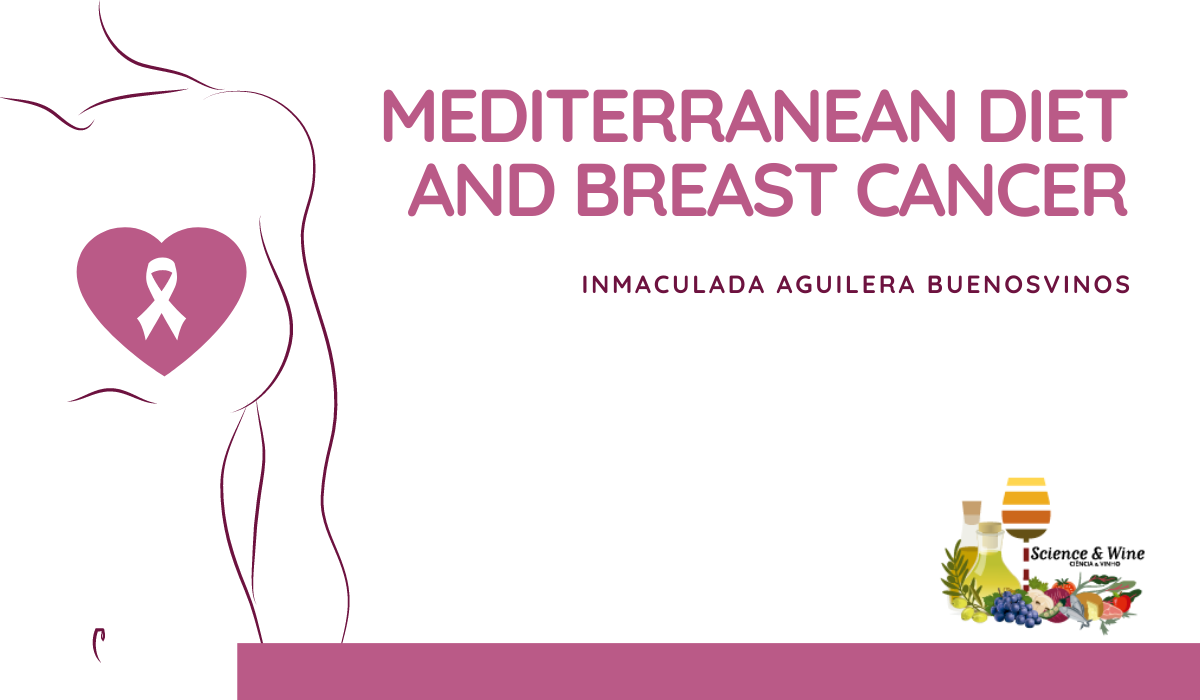By Inmaculada Aguilera Buenosvinos
Breast cancer is a major public health concern and a growing research has shown that adhering to a healthy dietary pattern, such as the Mediterranean Diet (DietMed), may prevent the onset of breast cancer and relapses.

Breast cancer is the most common cancer affecting women worldwide, accounting for about 2.26 million cases and 685,000 deaths in 2020 (https://www.who.int/en/news-room/fact-sheets/detail/cancer (accessed on 4 November 2021). Modifiable lifestyle-based risk factors such as tobacco use, alcohol consumption, bodyweight, and unhealthy diet (e.g., low intake of vegetables and fiber, high intake of red meat, processed meat, and deep-frying fat) and physical inactivity have been recognized to play a key role in the onset of breast cancer.

Diet is an important pillar of any lifestyle and can be used as a beneficial factor to help prevent cancer in general, and breast cancer. In this regard, the Mediterranean dietary pattern is mainly based on the consumption of wholegrain cereals, fresh fruit, and vegetables (leeks, mallow, tomatoes, lettuce, chicory, broccoli, and mushrooms, amongst others), fresh water, wine and olive products, and supplemented by sheep cheese, very little red meat intake and a strong propensity for fish and seafood seems to be the most effective in reducing the incidence of cancer. Although it is true that in the context of preventive nutritional strategies for cancer, the wine component would be removed from the dietary pattern, as alcohol is a proven human carcinogen.

The first nutritional intervention trial that assessed the incidence of first cases of breast cancer as an outcome was conducted in Spain and was the PREDIMED study. Its results were very striking. PREDIMED was a randomized field trial aimed at assessing the efficacy of aimed at assessing the efficacy of DietMed in primary cardiovascular prevention. As a secondary objective, the protocol included the assessment of the effect of the intervention on breast cancer. In the intention-to-treat analysis, women assigned to DietMed supplemented with extra virgin olive oil (EVOO) showed a relative reduction in the risk of breast cancer of 62% compared to the control group (https://pubmed.ncbi.nlm.nih.gov/26365989/)

Castello et al. found that the Mediterranean-style dietary pattern showed a protective role against breast cancer mortality risk, particularly in the case of triple-negative breast cancer. The closer the eating pattern is to the Mediterranean Diet, the greater the perceived benefits.
A protective role of the Mediterranean diet on breast cancer is biologically plausible since the Mediterranean dietary pattern is rich in fibre, antioxidants, including flavonoids, vitamins, carotenoids and squalene (mainly from virgin olive oil). It may modulate breast cancer risk by decreasing endogenous oestrogens, increasing sex-hormone binding globulin levels, neutralizing free radicals and preventing DNA damage, and reducing oxidative stress.
Furthermore, among women diagnosed with breast cancer, the Mediterranean diet also plays a fundamental role. First, these women who have been treated for breast cancer treatment present an increased risk of cancer relapse, but in addition to that, an increased risk of weight gain. Secondly, their quality of life is reduced because of the treatment for the primary breast cancer.
For all these reasons, the Mediterranean Diet has supposed a cornerstone of a healthy diet to prevent lifestyle-related diseases, and more specifically, breast cancer risk. What is clear is that the greatest benefits have been attributed to those dietary patterns with a common characteristic: they are based on increased consumption of mainly vegetables and fruit foods. A further step in the investigation of this pattern (DietMed) would be that biochemical and pathophysiological results in cell lines or animal models must be supported by epidemiological evidence.

Inmaculada Aguilera Buenosvinos
PhD student, Department of Preventive Medicine and Public Health, University of Navarra
Nutritional Epidemiology and Breast cancer.
References links:
https://www.mdpi.com/2072-6643/13/10/3482/htm
https://www.ncbi.nlm.nih.gov/pmc/articles/PMC5872744/

